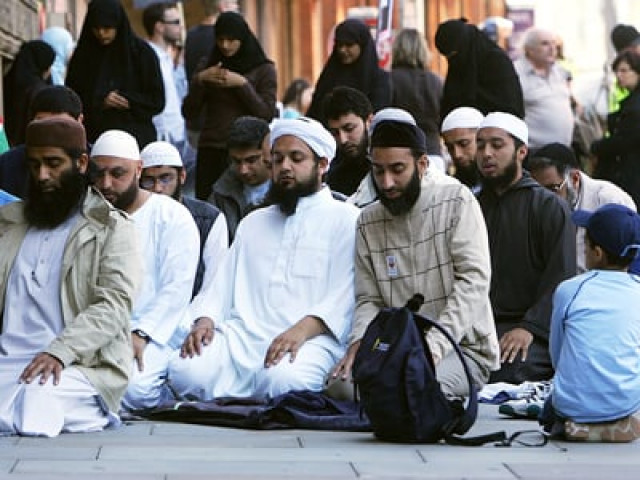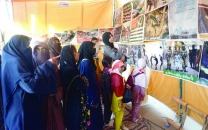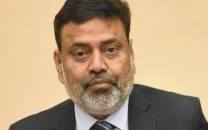Islam in America: ‘People with most negative opinions about Muslims have least knowledge about them’
US theology professor Dr Marcia Hermansen speaks to The Express Tribune in Karachi

PHOTO: AFP
"Statistics show that people with the most negative opinions about Muslims know the least about them," said Dr Marcia Hermansen, director of the Islamic World Studies Programme and theology professor at Loyola University, Chicago, where she teaches courses in Islamic Studies and the academic study of religion.
Speaking to The Express Tribune in Karachi, Dr Hermansen gave examples of proactive responses to anti-Islam sentiments growing in the US. The Council on American Islamic relations has brought out a counter drive like the My Jihad campaign, wherein Muslims post pictures on social media saying 'my Jihad is waking up the kids in the morning', she narrated. These actions have a positive response and work to 'interrupt the narrative', she added.
For the most part though, Dr Hermansen - who was in town to speak at the Second International Sufi Conference - was reluctant to delve too deep into her views on the Islamic concept of jihad or the role of women.

When asked to comment on what draws Western Muslim youth towards extremist ideologies, she explained that Muslim immigrants, in a bid to embrace the difference of their origins and the new home, get somewhat obsessed with Islam. However, this trend has changed as many young immigrants are now different, she added. "Some of it is just anti-social elements with criminal tendencies falling through the cracks."
On the rise of academic study of Islam in the US, she said teaching of Islam as a subject has expanded. "Muslims are more interested in studying it as the overall Muslim population is increasing. There's a push factor towards Islam as well as a pull factor, which leads to the notion that 'I should know about this'," she said. However, she claimed the process is slow. "Academic departments are still very Euro-centric," she said, adding that "we're not as global as we'd like to be."
Narrating some of the issues faced by Muslim Americans, she said there are some misconceptions [among non-Muslims] about women in Islam, as the image of women in Saudi Arabia does not make sense to everyone. Hermansen also said a number of non-Muslim Americans question the concept of arranged marriage, which she explains to them as "facilitated marriage, like joining a dating service [wherein two people are brought together by those who understand their similarities and differences]."
She termed the role of hijab 'interesting', saying it cuts different ways. "Sometimes Muslim Americans themselves can become a bit obsessive about it like when they have 'walk a mile in her hijab', or 'hijab awareness day'," she said, commenting that liberal Muslim Americans say there should not be so much focus on the issue. "They [liberal Muslims] say we all agree to be pro-choice," said Hermansen, adding that hijab as a litmus test of being a good Muslim is as oppressive as forcing someone to not wear a hijab in public.
Talking about Islam's perception as a violent religion, she said there is lack of awareness about peace-oriented teachings in Islam. "Theologians in Europe are really surprised when they hear about Muslim proponents of peace and non-violence such as Bacha Khan," she explained.
Regarding nuclear weapons and Islam, a subject she lectured on in 1984, Dr Hermansen, quoted a Muslim theologian from Thailand and said in the era of weapons of mass destruction, by definition any war should not be allowed as the basic principle of Jihad is not to hurt civilians. So Muslims cannot participate in nuclear war today, she said, quoting the Thai scholar.
When asked to comment on who the most influential Sufi saint is in the South Asian region, she said they differ with places. "In Delhi it would be Nizamuddin Auliya, while Lahore has Data Sahab," she said, aptly putting that they are "different lamps with one light".
Published in The Express Tribune, April 16th, 2016.



















COMMENTS
Comments are moderated and generally will be posted if they are on-topic and not abusive.
For more information, please see our Comments FAQ